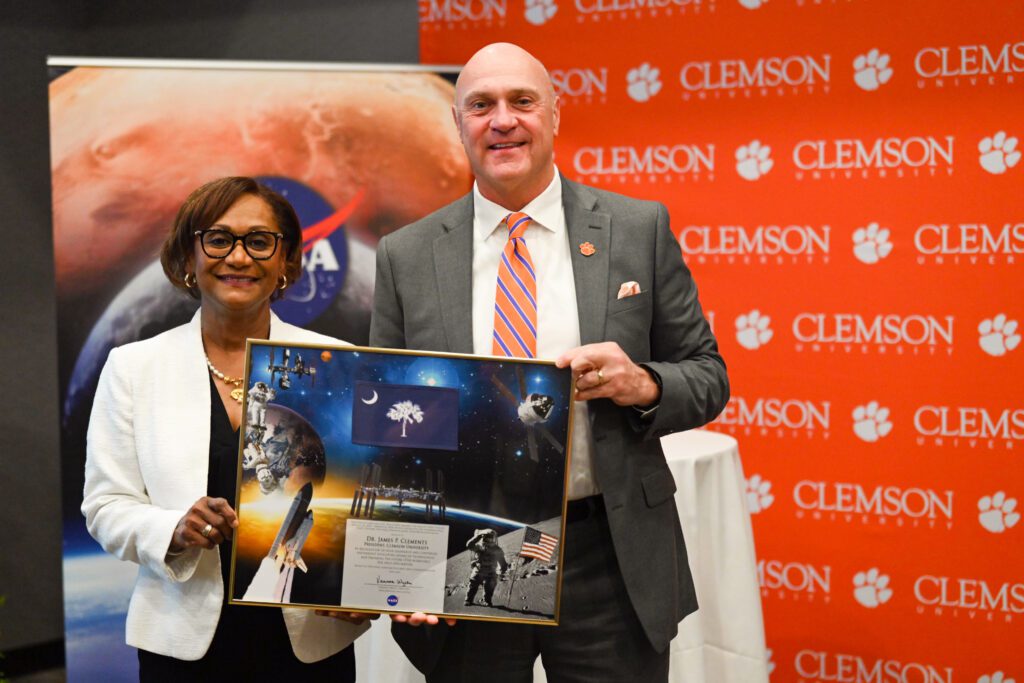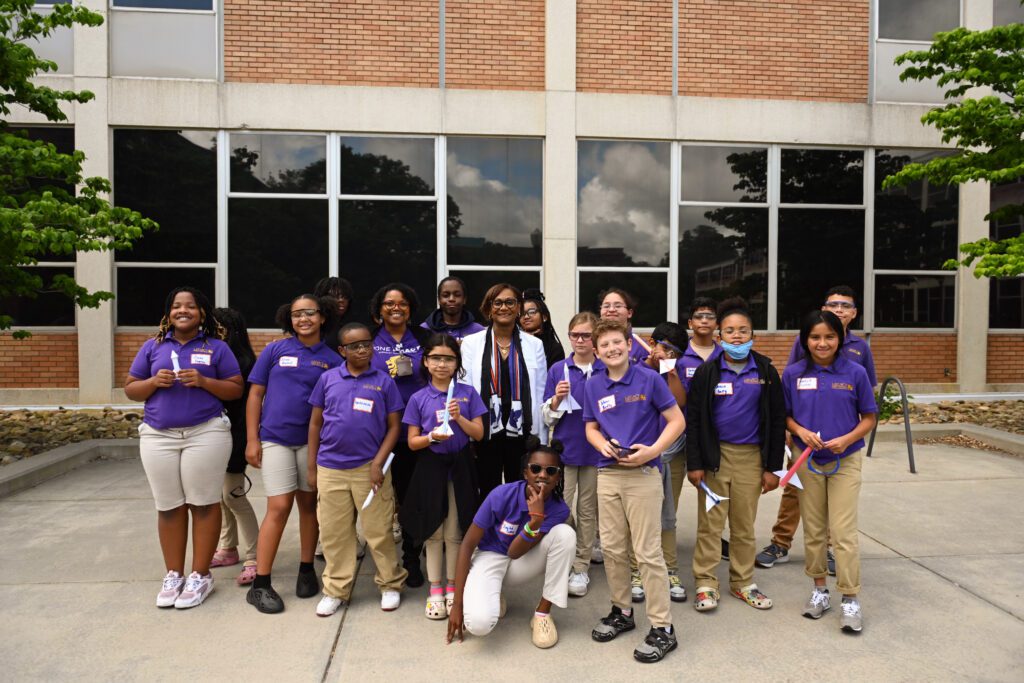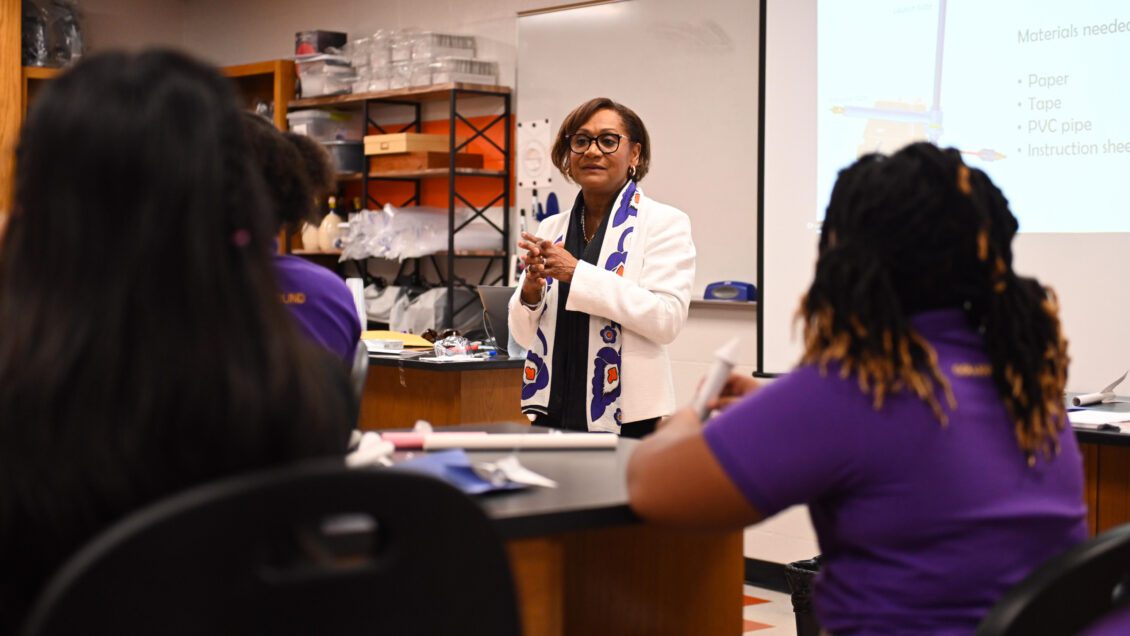Clemson University and NASA’s Johnson Space Center have signed a Space Act Agreement that opens the door to unique research and education opportunities aimed at advancing space exploration.
Johnson Space Center in Texas is home to America’s astronaut corps, NASA’s Mission Control Center, International Space Station operations, and a team of scientists and engineers working on advances in science, technology, engineering, and medicine.
The agreement paves the way for Clemson faculty and NASA to identify and pursue mutual research that fosters innovation in aerospace engineering, space and Earth science, advanced materials, computer and data science, advanced manufacturing, human health in space, and numerous other fields.

Additionally, Clemson students will have an opportunity to engage with NASA’s leading experts, participate in educational outreach activities, and benefit from mentorship and internship programs related to human spaceflight.
“Through the Space Act Agreement, Clemson University and NASA will continue to elevate our partnership to new heights,” said Jim Clements, Clemson University President. “We both share a deep commitment to research, innovation, collaboration and positively impacting the lives of others. And together, we will continue discovering new and exciting ways to create an even brighter future for everyone.”
Clemson alumna and Johnson Space Center director Vanessa Wyche visited Clemson’s campus Monday to sign the agreement.
“NASA’s Johnson Space Center’s history of working with colleges and universities dates back to the early days of the Mercury, Gemini, and Apollo programs where students, faculty, and staff helped us achieve our human spaceflight missions,” Wyche said. “The partnership with Clemson University to collaborate in research and technology development initiatives will assist NASA in meeting our nation’s exploration goals and advance human spaceflight as we continue missions on the International Space station, return to the Moon under Artemis, and prepare for future human missions to Mars.”

NASA’s research interests align well with Clemson’s strengths in energy, advanced materials, health, robotics, mobility and autonomous systems, to name a few, and NASA has been an important sponsor of Clemson research already. A Clemson faculty member is working on a NASA-sponsored project to help build stronger teams that can work effectively amid the rigors of space exploration, for example. Clemson has faculty members working on advanced materials that can withstand the extreme temperatures of space, AI-enabled drones for mapping and modeling, novel materials for spacecraft windows, and microbial fuel cells for space life-support systems, among other projects.
“Strong relationships with agencies like NASA are essential to our efforts to pursue meaningful, impactful research projects that translate and align with agency goals,” said Tanju Karanfil, Clemson senior vice president for research, scholarship and creative endeavors. “This relationship enhances the student experience at Clemson and provides invaluable connections for students to pursue their dreams after graduation and for faculty to think boldly in their pursuit of discovery. I am excited to see where our faculty and our students take this opportunity because with NASA, the sky is not a limit.”
Get in touch and we will connect you with the author or another expert.
Or email us at news@clemson.edu

